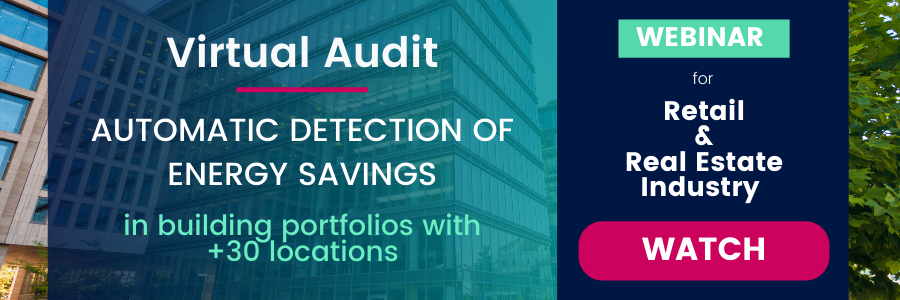Although you may not believe it, one of the energy manager’s worst nightmares is to answer their client’s energy efficiency questions – even the most basic ones! They can be tough to answer fully and completely, while trying to be specific to each project and situation. Yet, many energy managers still lose projects for this reason.
To make sure this doesn’t happen to you, we analysed 5 of the most common energy efficiency questions that typically come up in energy project conversations and outlined how to give a simple and clear answer.
Why do Energy Managers lose projects?
Several factors cause companies who initially was interested in saving energy to forgo a project.
In our 2021 sector survey, the following reasons were cited by energy professionals themselves.
Every potential customer is unique and their situation warrants you answering each energy efficiency question differently.
However, there is a clear underlying problem: unclear communication.
Many Energy Managers lose projects because:
- They fail to convince the customer of the ROI of energy management.
- Lack of finance is definitely a problem. But today’s energy manager must be up to date and aware of the financial assistance programs and subsidies for energy management available on the market. You can offer them to your prospects because many funding opportunities require them to work with an energy services company like yours.
- Lack of knowledge about energy metering hardware. Hardware is an essential element of an energy management project’s budget.
- They do not know about the latest cutting-edge tools that can help them solve complex problems.
5 Energy Efficiency Questions that Every Energy Pro Should Be Able to Answer
These friction points can be summarised in the following five energy efficiency questions. These are questions that can be complex, and especially tricky for newer energy management professionals.
Remember, as an energy manager your duty is to be able to respond to them clearly and straightforwardly, with simple language and with confidence in yourself.
1. How much will the project cost me and when will I get the ROI?
Aw yes, the MOTHER of all questions in energy management… Well, to start, we don’t like to give a quote at the very first meeting with a potential client, right?
Still, if you don’t know how to give even a rough estimate, you can end the meeting leaving behind a confused prospect and coming away without a sale. She might think an energy efficiency project will cost her millions or only a few hundred euros.
Since there are 2 parts to this question, here are 2 tools to help you answer it:
- The 10% rule for your client’s monthly bill. And, this Excel to help you to calculate it easily (free download)
- The energy savings pyramid.
2. Where do I start?
Sometimes you will face this question, especially in multi-location projects. For the client it is vital to know in which building is best to start their saving energy project.
How would you answer this question? Until now the process went like this:
- Audit your potential customer’s energy bills
- Visit their facilities to visually detect possible faults.
- Install provisional meters to see what is happening in detail.
All of this takes an investment of time and resources on your part. And this investment is often needed quickly: the client is focused on the results of a simple audit yet never manages to invest in your energy-saving services afterwards…
Not to mention travelling sometimes hundreds of kilometres to visit each of their facilities!
Thankfully, with new advances in non-intrusive load monitoring (NILM) technology, this process is changing. With online tools like Dexma Detect everything is easier.
Dexma Detect uses artificial intelligence to audit buildings remotely and estimates their potential savings.
With Dexma Detect, you can respond to your clients and prospects in a matter of hours instead of weeks or months. You can catalyse projects and revenue by informing them which buildings have the greatest energy savings potential and what they should focus on first.
3. Why do I need hardware?
Meters are an essential part of the energy efficiency puzzle. But they represent a monetary investment that can sometimes be difficult for your customer to understand. Many of them have “read on the Internet” that their main meter – or even a smart meter – is enough. “Why do you want to sell me all those extra measuring gadgets?” you might hear…
The key to answering this question is to make it very clear to the customer that, depending on the quality and frequency of the energy measurement, it will be possible to achieve a certain % of savings.
In other words, if we base the analysis and the energy efficiency plan on the consumption curve of the main meter only, it will be difficult to implement specific measure in one or another area of the building to save energy. The actions will be generic.
And, if tomorrow they will decide to invest in a more efficient machine that consumes less or a renewable energy installation … they will not be able to see the impact of their investment without sub-metering.
4. Which energy management software should I choose?
As energy management software providers, we know this: it is not only difficult to recommend meters.
Recommending software is also complex, as there are many variables that come into play.
Many times customer chooses the “cheaper” platform to “test” what this energy management software all about. And you have to give in as an energy professional, even if it’s not always what you would recommend.
We won’t tell you to go against your client, we don’t want you to lose a project because of us!
But it is important for you as a professional to help them see the pros and cons of the tool they choose. We discussed this in our guide to choosing the best energy management software.
The easiest way is to download our template for evaluating energy efficiency software:
The checklist features 10 simple questions to ask your customer to help them quickly see the pros and cons of the solution in question.
5. Why should I trust you with my energy efficiency project?
Another important question to be prepared for. Why you and not another energy manager?
Here it is key that you stand out with your positioning as a company or professional. Being technologically up to date is important. You can subscribe to our blog and we will send you news and updates whenever you want.
You can catch up using these free learning materials:
- Guide to Becoming a Better Energy Manager
- The Future Proof of Utility: A Guide for Utilities in Digital Transformation
And, of course, make sure you stand out across your social networks. Here and here you’ll find some additional tips to shine on LinkedIn.





